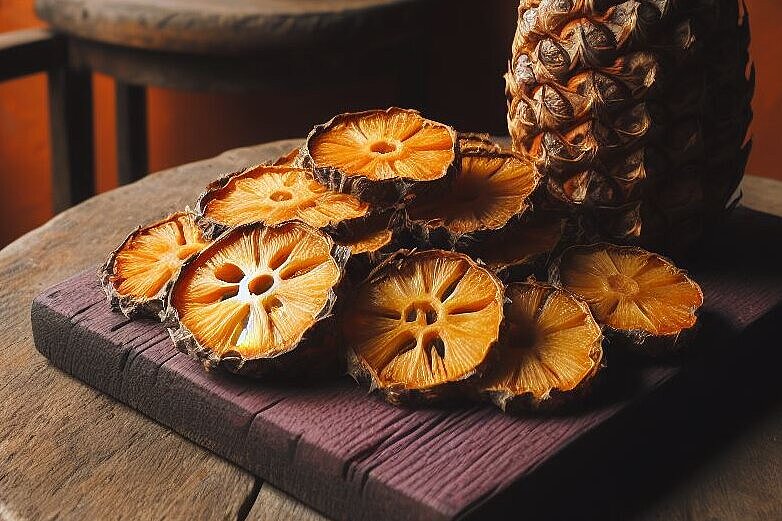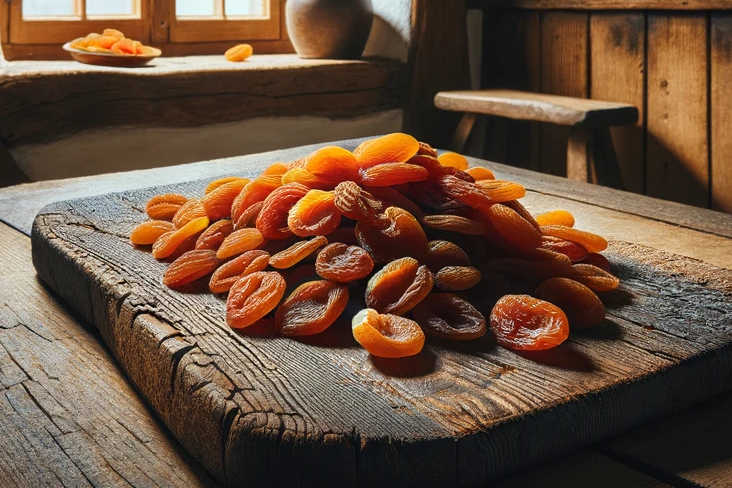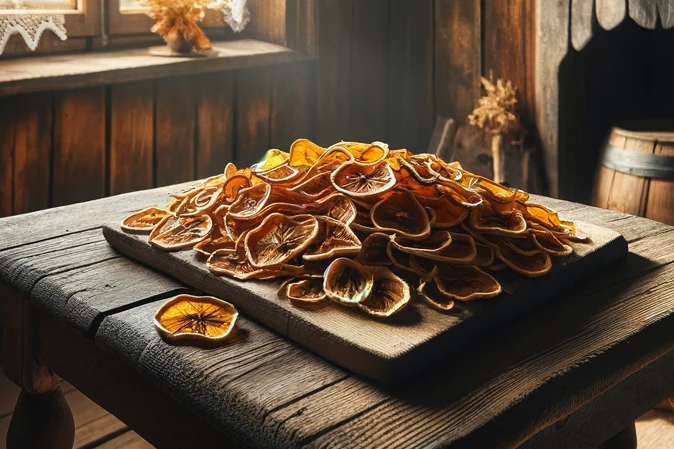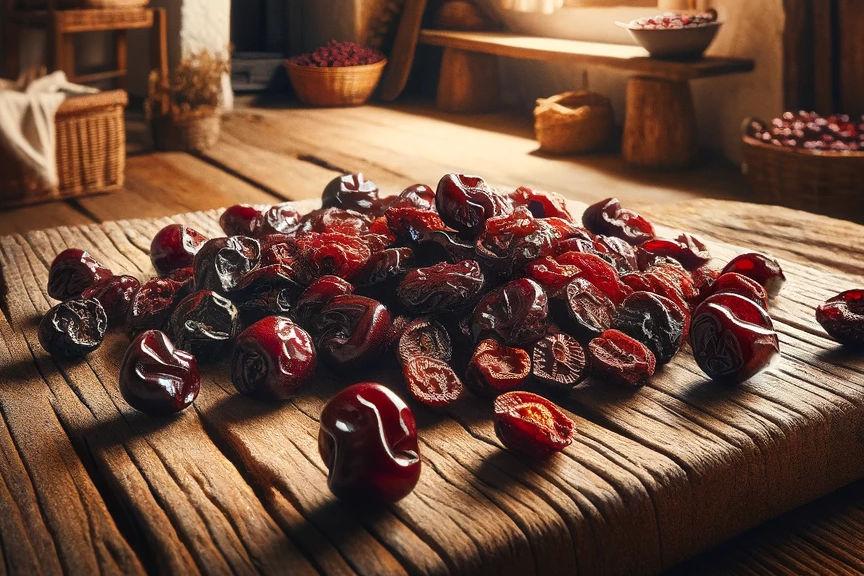Dried mangoes

Mangoes, known as the 'kings of fruit', are a source of sweetness and nutrients that many of us enjoy. But what about the dried version of this exotic fruit when it comes to our dogs' diet? Dried mangoes might seem like a tempting addition to your four-legged friend's diet at first glance, but it's important to understand the potential benefits and risks. In this article, we explore dried mangoes, their properties and how they can affect your dog's health.
What are dried mangoes?
Dried mangoes are made by removing the water from fresh mango fruit, which can be achieved through natural sunlight, a dehydrator or industrial drying processes. This process concentrates the mango's natural sugars, flavors and nutrients, resulting in a long-lasting, sweet and nutritious snack.
Benefits of dried mango for dogs
Rich in vitamins and minerals
Dried mangoes contain a range of vitamins and minerals that can be beneficial for your dog's health, including vitamin A, vitamin C and vitamin E. These vitamins support the immune system, skin health and vision.
Natural sweetness
For dogs that are prone to obesity or have a sweet tooth, dried mangoes can be a healthier alternative to processed treats. Their natural sweetness can stimulate appetite and increase satisfaction.
Source of fiber
The fiber content in dried mangoes can aid digestion and help maintain a healthy gut. Fiber is important for maintaining regular bowel movements and can help prevent digestive problems.
Possible risks and disadvantages
High sugar content
The high sugar content in dried mangoes can lead to weight gain and an increased risk of diabetes, especially if consumed in excess. It is important to limit the amount of dried mangoes given to your dog.
High in calories
Despite their nutrients, dried mangoes are high in calories. Excessive feeding can lead to an unbalanced diet and obesity.
Potential danger from additives
Some commercially produced dried mangoes may contain added sweeteners, colorings or preservatives that can be harmful to dogs. It is important to choose natural products without harmful additives.
Recommendations for dog owners
If you want to give your dog dried mangoes, you should do so in moderation and treat them as an occasional treat, not as a regular part of their diet. Start with small amounts and observe how your dog reacts. Choose products that are free from added sweeteners and preservatives.
Dried mangoes can be a tasty and nutritious addition to your dog's diet if used responsibly. They offer health benefits due to their richness in vitamins and minerals, but their high sugar and calorie content requires caution. With the right selection and dosage, dried mangoes can be a welcome change in your dog's diet, strengthening the bond between you through shared moments of pleasure.
If you notice any signs of hypersensitivity or poisoning in your dog, you should see your vet immediately. We are not a substitute for a vet, but we try to be as accurate as possible. Every dog reacts differently and we recommend you get a second opinion or consult your vet if in doubt.
Stay healthy and take good care of your four-legged friend!😊
Similar to Dried mangoes
Dried pineapple is the result of a dehydration process in which fresh pineapple pieces are deprived of their moisture. This process preserves the pineapple, extends its shelf life and concentrates...
Dried apricots are the result of the drying process of fresh apricots. This process significantly reduces the water content of the fruit, giving it a longer shelf life while concentrating its...
Dried bananas are made by removing the water content from fresh bananas, either by air drying, using a dehydrator or by baking. The drying process concentrates both the flavor and nutrients,...
Dried cherries are the result of a dehydration process in which water is removed from fresh cherries, either by air-drying, using a dehydrator or by baking. This process preserves the fruit and...



